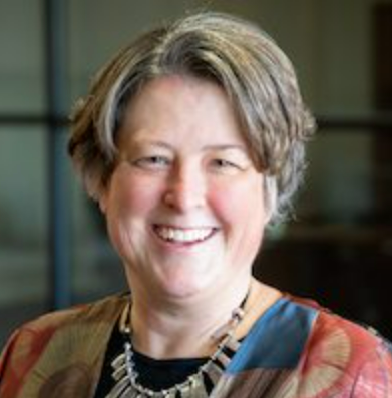CIMER Leader Helps Organize, Present National Mentoring Workshop for Research Universities, Funders, Associations
January 20, 2023 | By Karen Rivedal, WCER Communications

McDaniels is a scholar-practitioner with over 30 years' experience building equitable academic workplaces.
WCER scientist and CIMER Associate Executive Director Melissa McDaniels helped design and deliver a two-day workshop in Washington, DC, aimed at helping the nation’s research universities and associated stakeholders understand how to better implement, incentivize, and create accountability structures in doctoral education programs nationwide.
“We know that high quality and equitable mentorship practices in doctoral education will exist when institutions invest in creating cultures of mentorship,” McDaniels says. “You have to look at department chairs and academic leaders and deans. You look at funders. What are the institutional mechanisms that have to be in place? We have research about the benefits of inclusive doctoral mentorship, but oftentimes institutions don’t have accountability mechanisms in place to sustain those policies and practices.”
WCER’s Center for the Improvement of Mentored Experiences in Research (CIMER), formed in 2015 and led by Senior Scientist Christine Pfund, is dedicated to improving research-focused mentoring relationships at all career stages in higher education.
Good mentorship has been recognized across government and academia over the past decade-plus as a driver for improved career satisfaction, advancement, and productivity. It also is valued as a tool to increase participation in science, technology, engineering, math, and medicine (STEMM) by historically underrepresented groups.
The workshop, “Taking Doctoral Mentorship Seriously: Institutional Design for Equity and Inclusive Excellence,” was held Jan.17−18 at the Association of American Universities (AAU). Hosts were AAU, CIMER, the National Academies of Sciences, Engineering, and Medicine (NASEM), Duke University, the USC Equity in Graduate Education Resource Center, and Stanford University.
“We will identify the challenges and opportunities that research universities are facing as they determine how to foster best practices and hold individuals and academic units responsible for equitable mentorship,” the workshop’s articulation of purpose reads, “and establish an actionable agenda to support the implementation of promising institutional mentorship practices and policies.”
Momentum for the workshop came from research-based recommendations from two major pieces of recent scholarship: AAU’s “PhD Education Initiative” and a NASEM consensus study on the science of effective mentorship in STEMM.
The 287-page NASEM report, plus an online guide to recommended tools and resources, was produced by a national ad hoc committee led by Angela Byars-Winston, a UW−Madison Department of Medicine professor and an investigator with CIMER. Pfund was among the committee’s twelve members, underscoring CIMER’s influence in the mentorship field.
“This is the time to leverage all of that work,” McDaniels says. “We need to understand what institutions are grappling with as they implement these recommendations.”
The workshop’s guiding goals included:
- how to measure success and failure in advising and mentoring practices
- how to ensure proper engagement with and responses to faculty who fall short of basic expectations for advising and mentoring
- how to develop and implement organizational practices centering and advancing issues of equity for marginalized and oppressed groups in higher education
- how to use incentives to reward excellence in advising and mentoring
McDaniels and Howard University graduate researcher Nicole Johnson facilitated a workshop session in which participants were asked to address “implementation puzzles” such as “challenges, critical questions, and resource needs” around given mentorship practices or policies.
Citing some of the creative tensions discussed, McDaniels says, “What do you do when there’s unequal resources within and across institutions that are being asked to invest in greater accountability structures? What are the expectations for high quality mentorships, and who does the defining? How do you build a collective agreement among faculty, students, and other important stakeholders? How do you create standardized policies with enough flexibility to account for diverse students, disciplines, and departments?”
Workshop participants numbered nearly 50 and included public and private universities; professional societies including the American Council on Education, the American Association for the Advancement of Science, and the Council of Graduate Schools; doctoral students; and federal funding agencies such as the National Institutes of Health and the Department of Energy.
“We had colleagues from all of these different sectors, not just higher education, coming together to talk to each other about how to move beyond the recommendations to more widespread implementation of these ideas,” McDaniels says. “We discussed how this gets enacted at the institutional level and what are some of the complications that could come up and how to solve them.”
The workshop was funded by the Alfred P. Sloan Foundation. Organizers plan to issue a white paper summarizing findings in about a month, McDaniels said.


